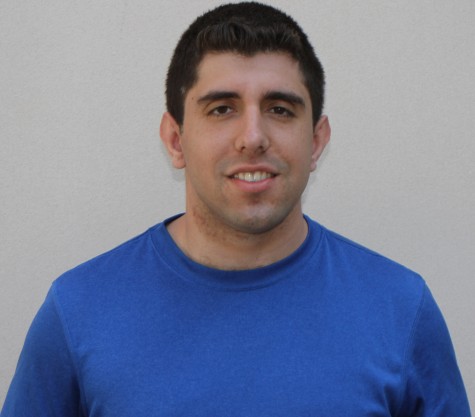Although we live in a society that strives to break away from the traditional roles of men and women, it can still be hard for many to fathom a woman engineer. Jazlyn Carvajal and the Latinas in the STEM Foundation program seek to end these stereotypes one workshop at a time.
Representatives came to host “Latinas in STEM,” a conference in the Student Center and the auditorium on May 10, which consisted of various workshops and lectures, encouraging mainly high school and middle school Hispanic women and their parents to pursue a degree in the science, technology, engineering and math (STEM) fields.
Jazlyn Carvajal, one of the founders, is passionate about working in engineering and inspiring others to do so. She majored in civil engineering and works in construction management.
“After one conference, I was approached by four girls who I inspired, which made me very excited, so I told my friends we could really create a support network system,” Carvajal said.
Latinas in STEM was created in 2013 by MIT Engineering graduates in order to help out their communities. The founders were all the first in their families to attend college, and they want to reciprocate the direct outreach they received when they were in high school.
The day’s schedule consisted of breakfast in the morning; workshops with the Do-It-Yourself Girls; a parent and student lecture about STEM and financial aid; free lunch of sandwiches, fruit and water; a game of Jeopardy; and a Latinas in STEM Panel.
The DIY Girls is a nonprofit organization that aims to encourage females to get involved with education, technology and engineering, by providing them with hands-on educational work.
“We are tired of being the minority in fields dominated by men,” Carvajal said. “Only two percent of all STEM professionals are Latinas. We want to be that catalyst that strives and changes the members through support and mentoring.”
She stressed the impact made on students and their parents, and how its a team effort. Parents need to be educated about the opportunities in order to help their child succeed.
“My parents were always there for me. They went to every activity I was involved in,” said Carvajal.
Originally from Chile and Puerto Rico, her parents pushed her to get straight A’s so she wouldn’t have to work hard for low wages.
“People are impressed by how we came from low socioeconomic backgrounds and did so much for our careers,” she said.
Mentorship was emphasized as an important part of the process. There were times whernCarvajal felt she wasn’t cut out for the field, that as a woman she didn’t belong. Guidance from others made her feel motivated to persevere.
Her parents were at first confused by the concept of her going away to college. It was challenging for them, but eventually they became so wrapped up in the college affairs of their daughter that they became the “adoptive parents” of her college friends, cooking meals and driving them around.
Carvajal believes that STEM can be a good fit for those who apply themselves. She said that those who can’t get math just might need to learn a different way.
“You should still keep at it,” said Carvajal. “I think it’s beautiful how there are multiple ways of solving a problem.”
Students from Alhambra, Southgate and El Verne and others gathered in the auditorium later in the day, to hear lectures from speakers Dr. Richard Cortes from GCC and the founding members of the Latina STEM Foundation.
One Latino speaker, who earned his masters degree from a CSU, picked students from the audience and asked them who motivated them. Some said their parents, who either graduated or worked manual labor jobs, pushed them to have a better life. One father said, “If you want to be stupid like me you’re going to work like me.”
Another speaker talked about how growing up in Hispanic communities makes members grow too comfortable. They need to realize is that situations that make you uncomfortable will make you stronger in the long run.
Noramay Cadena, one of the engineers, was accepted into MIT despite being a teen mother. She cites this as one of her major motivations to be successful in STEM.
“Cutting myself out of the hole I dug was pretty challenging,” said Cadena. “My advice to others with adversity is to plan on getting through one week at time, and then a week after that etc. If you can get through one week, you can get through another one. I thought about how I didn’t want my daughter to have a hard life.”
Veronica Garcia, another founder, said her parents came from Mexico and made sacrifices for their daughter to have a better life. However, they weren’t prepared for her to go off to MIT.
“They were supportive but mom was crying when I left the house,” said Garcia. “It made me feel worse, since I was already nervous about going to a place full of strangers.”
With a bit of humor, she advised parents in the audience not to show tears or sadness in front of their child — they can let it all out when they leave.
At the end of the conference, two iPads and other gifts were raffled to audience members with corresponding tickets, but perhaps the biggest prize of the day was free — the key to success.

